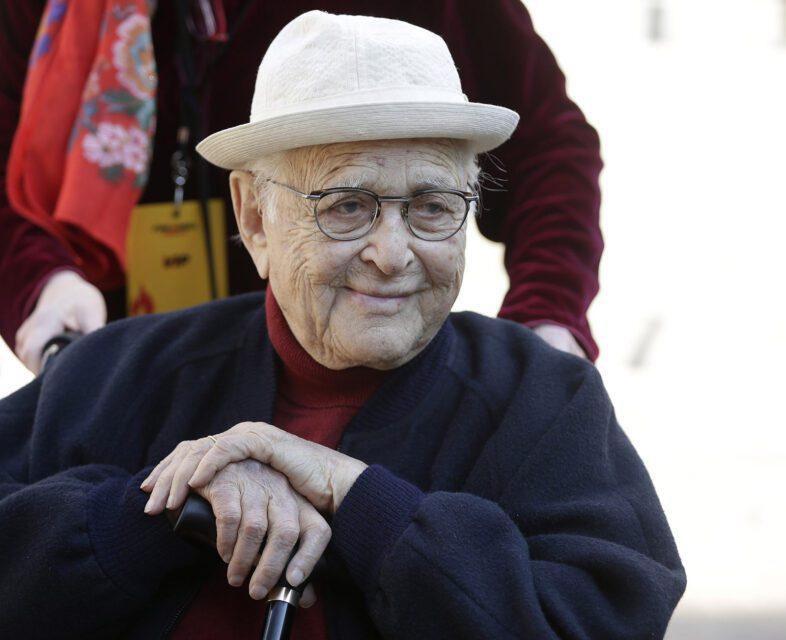(RNS) — When I was growing up in the 1970s, our family did not have many rituals. We had Shabbat dinner and Passover Seders, and our secular ritual was bagels and lox on Saturday evening.
And watching “All in the Family.” That was our ritual.
We laughed at Archie Bunker, the blue-collar “bigot” from Queens.
We felt that we knew Archie. Our family had come from Queens, decades ago. We were from Jamaica, which was across the Grand Central Parkway from Astoria, where the Bunkers lived. (The Cuomos were also from Jamaica; Mario’s father had a store on the same street as my grandfather’s store). We had relatives who were Archie Bunker-ish. If you want to understand Donald Trump, who grew up in Queens (albeit in affluent Jamaica Estates), think of a far more malignant version of Archie Bunker.
Archie was prone to bigoted remarks. I always loved the episode where Archie makes veiled antisemitic comments about stores like Bloomingdale’s, Klein’s, and Abraham & Straus — he gets his comeuppance.
But in certain episodes his bigotry melted, and you could see the real human being behind and beneath it all: his friend Stretch Cunningham’s funeral, where he learned that Stretch was Jewish, and in which he delivered a spontaneous eulogy; or the show where the Bunkers have a Shabbat dinner.
Archie Bunker was not only a television character. He is part of American mythology, a part of how we define ourselves.
Norman Lear, Archie’s creator, has died at the almost biblical age of 101. He created television shows that defined 1960s-1970s American life and sensibilities, with a unique focus on race and class that has rarely been equaled. Had he only created “All in the Family,” we might say: Dayeinu. OK — “Maude” and “The Jeffersons” as well.
But I have my own personal memory of Norman Lear, as a religious thinker.
Some 30 years ago, I wrote a book, “Being God’s Partner: How to Find the Hidden Link Between Spirituality and Your Work.” It was the first Jewish book to explore the connection between work, career, values, religion and the inner life, as well as addressing the spiritual dimensions of workaholism. I remember musing: Why is workaholism the only socially acceptable addiction?
We needed a “big name” to write the introduction — a prominent Jew, involved in the secular world, who could frame that spiritual quest. We asked Norman Lear to write it, and he happily obliged.
I cherish Norman Lear’s words, and I often return to them for inspiration:
When one approached a city in medieval times, the tallest structure that could be seen on the skyline was the church, and its steeple. As the power and influence of the church gave away to kings and rulers, the castle dominated the skyline. Today, as one approaches the city, the most commanding structures are the skyscrapers, the cathedrals of modern business…
The term “consumer” is now a substitute for the term “citizen.” What is notable about this contemporary fountainhead of values is not simply the message that can be reduced to the five word phrase “We are what we consume.” It is the commitment of American business, not to qualitative values, but to quantitative values. We define ourselves, our values, and our aspirations by SAT scores, Nielsen ratings, box office grosses, cost-benefit analysis, quarterly profits, bottom lines, and polls. All of these exert an iron grip on our sense of the possible, and on our very identities. As a numbers-oriented culture, we place our faith on what we can graph, chart or count, and we are suspicious of the unquantifiable, the intuitive, the mysterious…
We need to develop the capacity for awe, wonder, mystery, art, music, love, compassion; by honoring the very search — and the very need — for higher meaning.
We all need to understand not just the creeds, and the faith rivalries that divide us, but the rich capacity for religious experience that unites us; to nurture the desire we all possess for some invisible means of support — and to deliver to one another the way the universe delivers to us. And to remember, especially in our culture that puts much emphasis and faith on numbers, that, indeed, there is one number that truly has meaning and power, and the ability to speak to each of us: The number one — or in Hebrew “Echad,” which in Judaism is another term for God, the Oneness within us and around us, and before which all other numbers pale.
Norman Lear was prescient. Had he written those words in recent times, he would have added to his list of measurables: the number of internet hits, the number of “likes” and one’s ability to be a social media influencer.
I share this with you for another reason. Often, we consign religious and spiritual introspection to modern sages and theologians, who often teach in seminaries or write religious books.
But popular culture and its purveyors have always been the bearers of deeper spiritual quests. The culture has powerful things to say to us, even in ways we could not have imagined.
For those reasons, and many more, Norman Lear was an American Jewish treasure. We shall miss him, and may God comfort his family — and all of us, as well.






